Learning & Teaching
Learning and Teaching encompasses the following areas: Student Outcomes, Curriculum, Assessment, Reporting, Principles and Pedagogy.
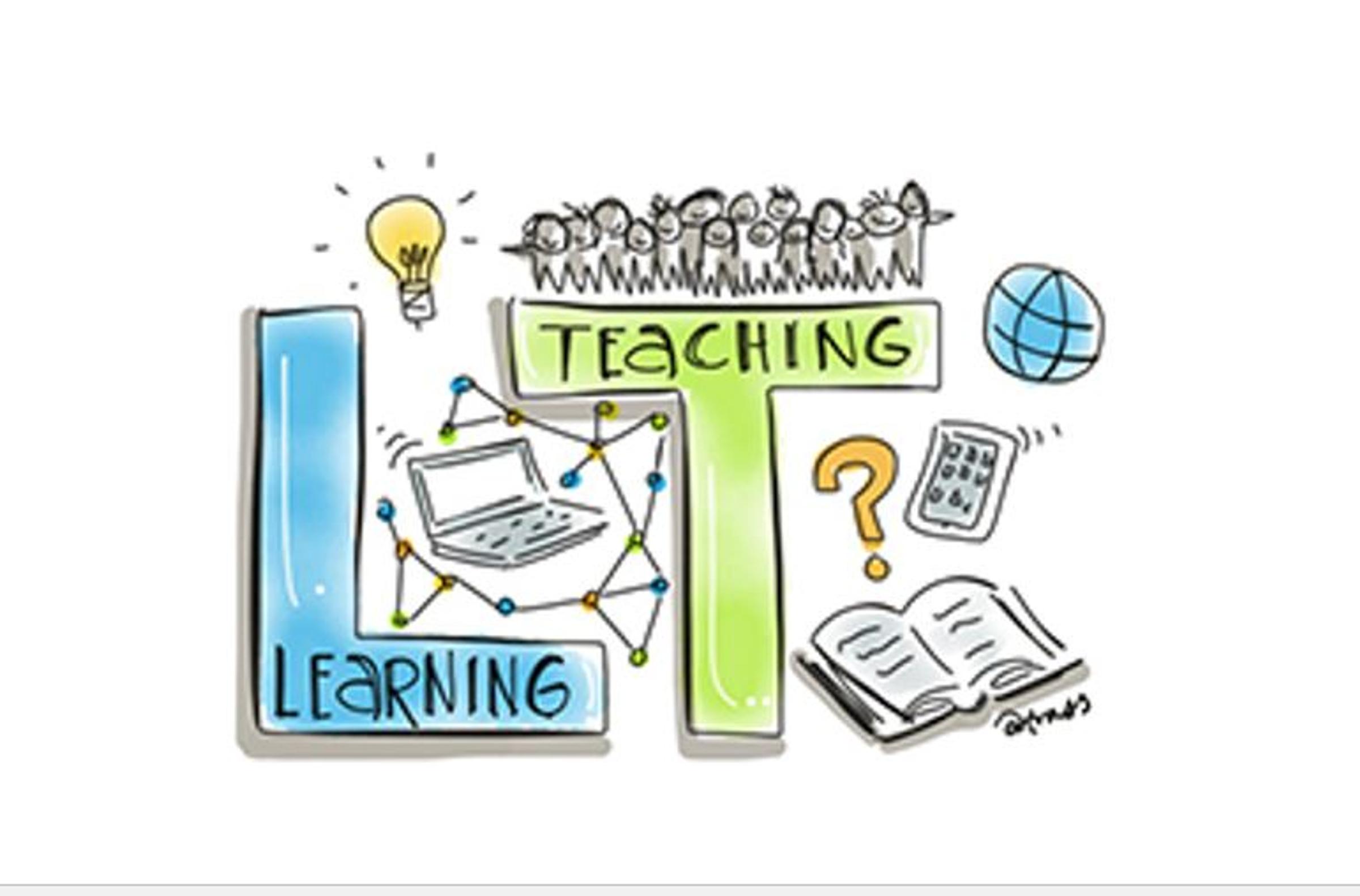
Learning & Teaching
Learning and Teaching encompasses the following areas: Student Outcomes, Curriculum, Assessment, Reporting, Principles and Pedagogy.
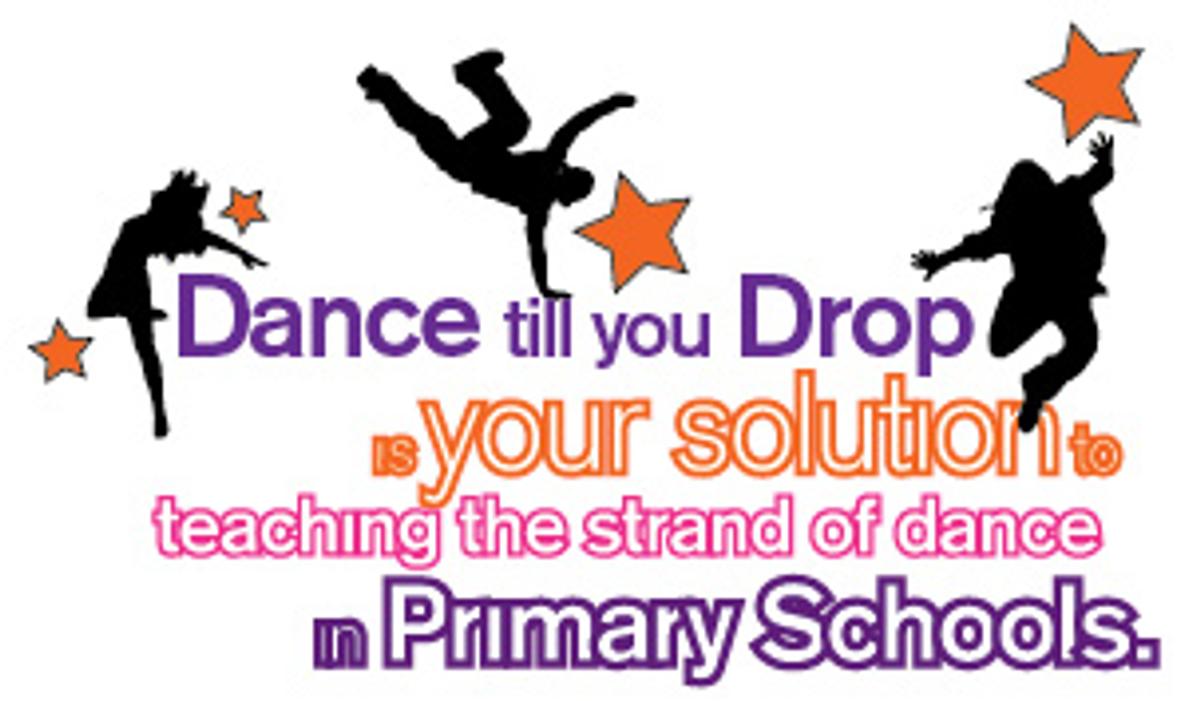

Exciting News: Dance Concert
We are thrilled to announce that our Dance Program has commenced, and students across the school are already enjoying learning the routines they will perform at our upcoming Dance Performance! Each year level will perform a unique dance, and the excitement builds as they prepare to showcase their creativity and energy on stage.
To ensure all families have the opportunity to enjoy the performances, there will be two concert sessions:
Date: Thursday, 7th August
Concert 1: 6 pm
Concert 2: 7:30 pm
Location: School Hall - Hawthorn Street
Please add the date to your diary. This will be a wonderful celebration of student learning, confidence, and artistic expression. Your child's classroom teacher will send home further information about costumes and other event details, so please look for those notes.
Thank you for your continued support – we can’t wait to share this special event with you!
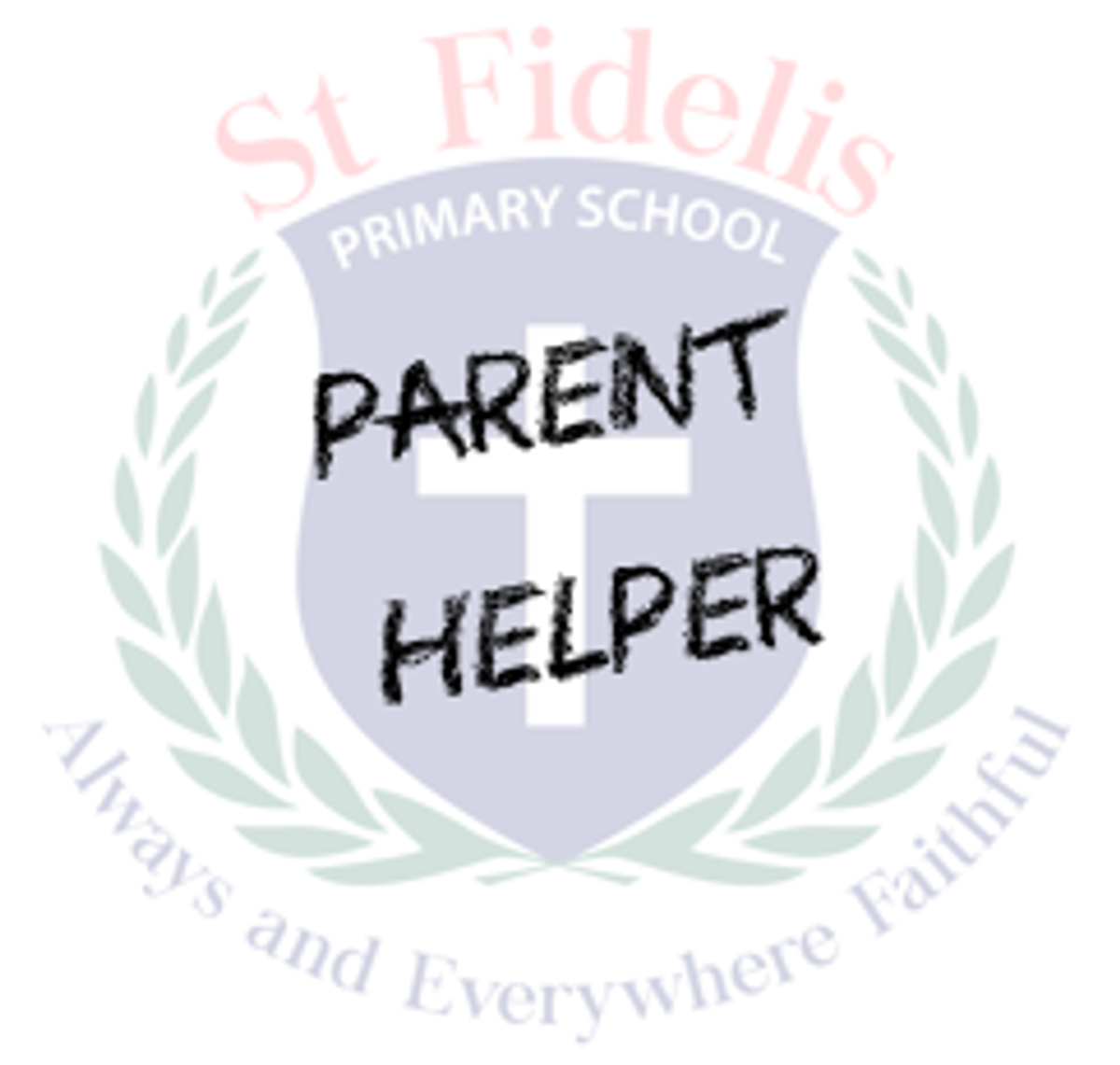

Parent Helpers – Join Us in Supporting Our Students!
We are excited to welcome parents back into our learning spaces in 2025! Being a Parent Helper is a fantastic way to engage in your child’s education and contribute to our vibrant school community.
Parent Helpers play an essential role across the school, assisting in classroom support, excursions, incursions, fundraising, stalls, working bees, and more.
We shared information about how you can get involved last term, and we’re pleased to confirm that the Parent Helper Child Safety Induction session is scheduled for Wednesday, 21st May, at 9a.m.
All volunteers must:
Your time and support make a real difference - we are so grateful for any help you can offer! If you are unable to attend or have questions or require further information, please contact Ms Vira Pirrotta atvpirrotta@sfmoreland.catholic.edu.au
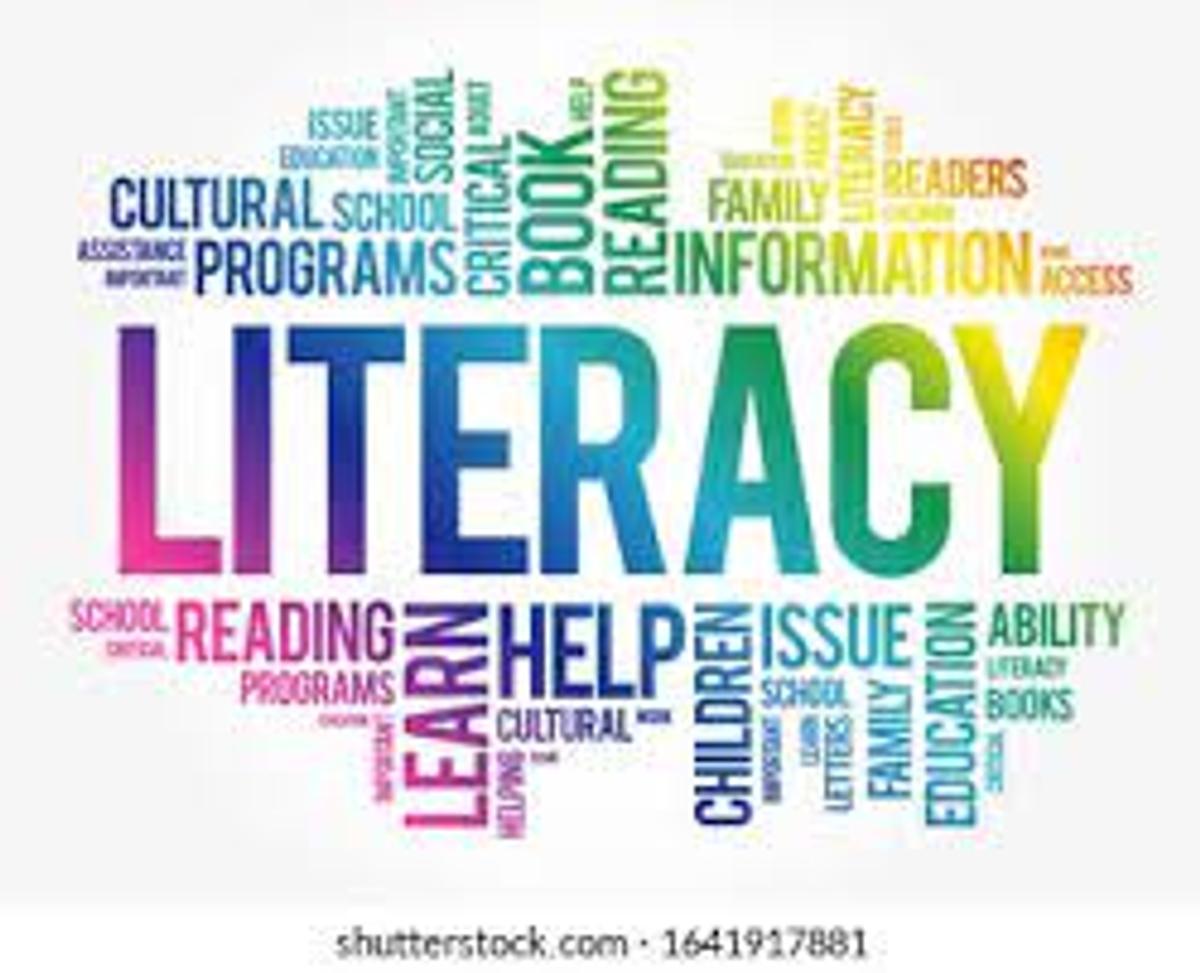

Thank you to all the parents who joined us for the InitiaLit information session last Tuesday. We were pleased to welcome so many of you and truly appreciate you taking the time, especially during a busy weekday, to attend. We understand it can mean rearranging schedules or taking time away from work. We hope you enjoyed the opportunity to visit the classrooms and gained an insight into how InitiaLit is being implemented.
I’d like to extend sincere thanks to Leanne, Alycia, and Olivia for welcoming the parent visitors into their classroom and doing such a fantastic job. Thank you for showcasing the amazing work you do each and every day.
Following is the information I shared in the digital presentation.
What is InitiaLit?
InitiaLit is a whole-class, evidence-based literacy program designed to build a strong foundation in reading and writing. It is a comprehensive whole-class program that includes two components: systematic synthetic phonics and rich literature.
Who is InitiaLit–F for?
InitiaLit-F is specifically designed for Foundation students, focusing on providing them with the essential literacy skills they need for their first year of school.
About InitiaLit–F
InitiaLit–F addresses the five key components necessary for effective instruction in reading: phonemic awareness, phonics, fluency, vocabulary and comprehension.
Program structure and implementation
InitiaLit–F is taught across the four terms of the school year.
The program is designed to be delivered in a 90-minute instruction block. It includes:
Classroom implementation
Reading with your child
Decodable readers
Soon, students will begin bringing home decodable readers. These books are designed to give students the chance to practise the skills they have learnt at school and support their growing knowledge of letter-sound relationships. They also help children sound out words, read tricky words, and build vocabulary with confidence.
Tips for reading together
Set a Routine
Create a calm, regular time each day for reading - after dinner, before bed, or after school.
Look at the cover together
Talk about the pictures, and make predictions about the story before starting. Read the title aloud. Ask your child questions.
Encourage Finger Pointing
For early readers, pointing to each word helps with one-to-one correspondence.
Let Them Try First
Give your child time to sound out words before jumping in. Prompt gently if needed (e.g., “What sound does that letter make?”).
Use the Pictures for Support
Teach them to look at the illustrations to help figure out tricky words or understand the story better.
Reread Familiar Books
Repetition builds fluency and confidence. Encourage rereading books they’ve already read. Rereading helps your child develop fluency and read with better expression.
Celebrate Small Successes
Praise effort, not just correctness. Say things like, “I love how you tried to sound that out.”
Talk About the Book
After reading, ask simple questions: “What happened?” “What was your favorite part?” “Why do you think the character did that?” This helps with comprehension and makes sure they understand what they’ve read.
Model Reading Aloud
Occasionally, read a page to demonstrate expression, tone, and fluency.
Avoid Over-Correcting
If the error doesn’t change the meaning, it’s okay to let it go sometimes. Focus on overall comprehension and enjoyment. Don’t jump in too quickly to correct them; this can help build their confidence. If they need a little help, encourage them to have a go at solving the word, and if they’re still having trouble, you can demonstrate the word for them. If it’s a tough word, you can say it for them.
Keep It Fun
Use different voices, act out parts, or let your child read to a pet or stuffed animal.
Lastly, during the information session, a couple of questions were raised:
Have a great week.
Bernadette Parnis
Literacy Leader
bparnis@sfmoreland.catholic.edu.au
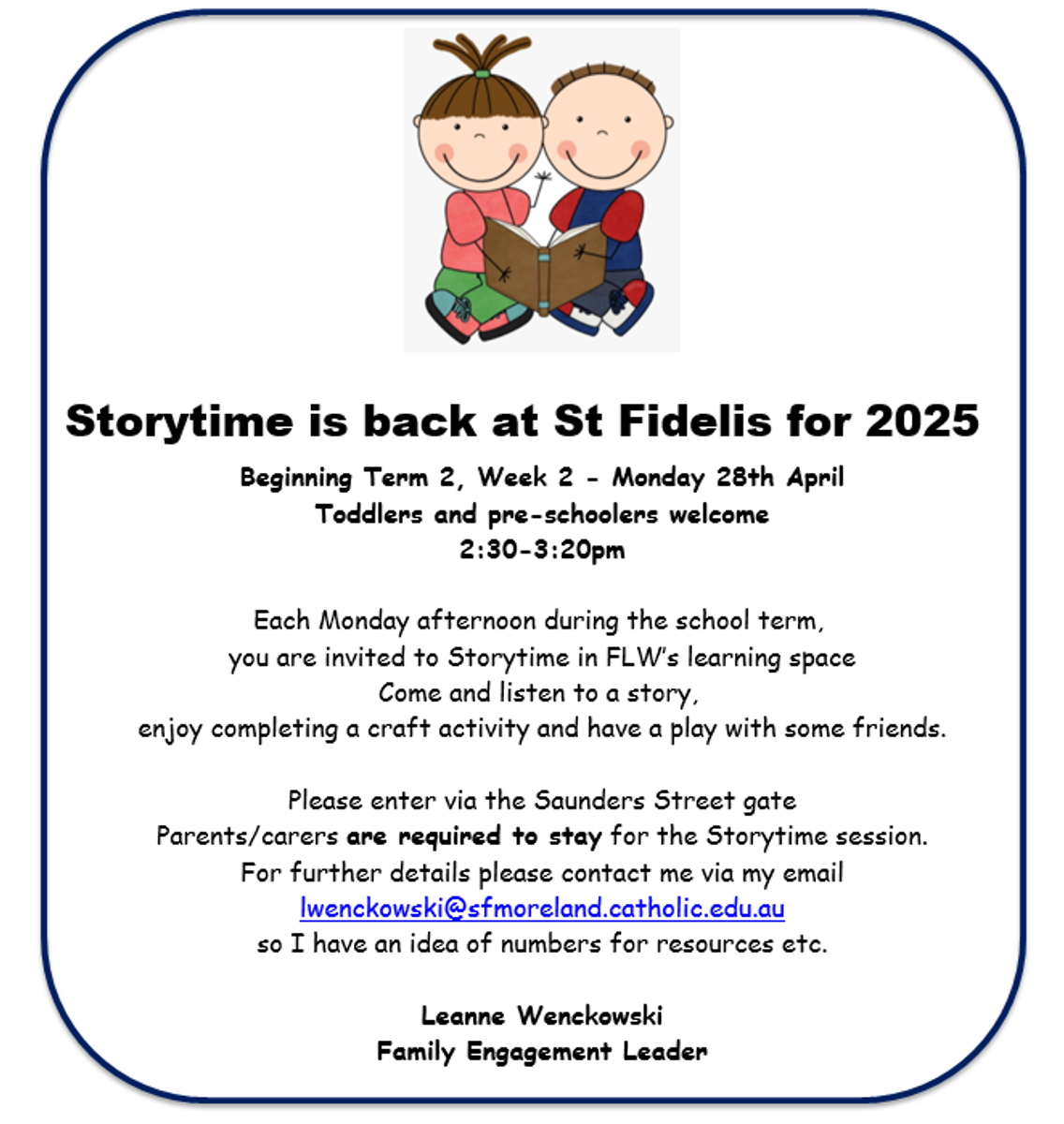

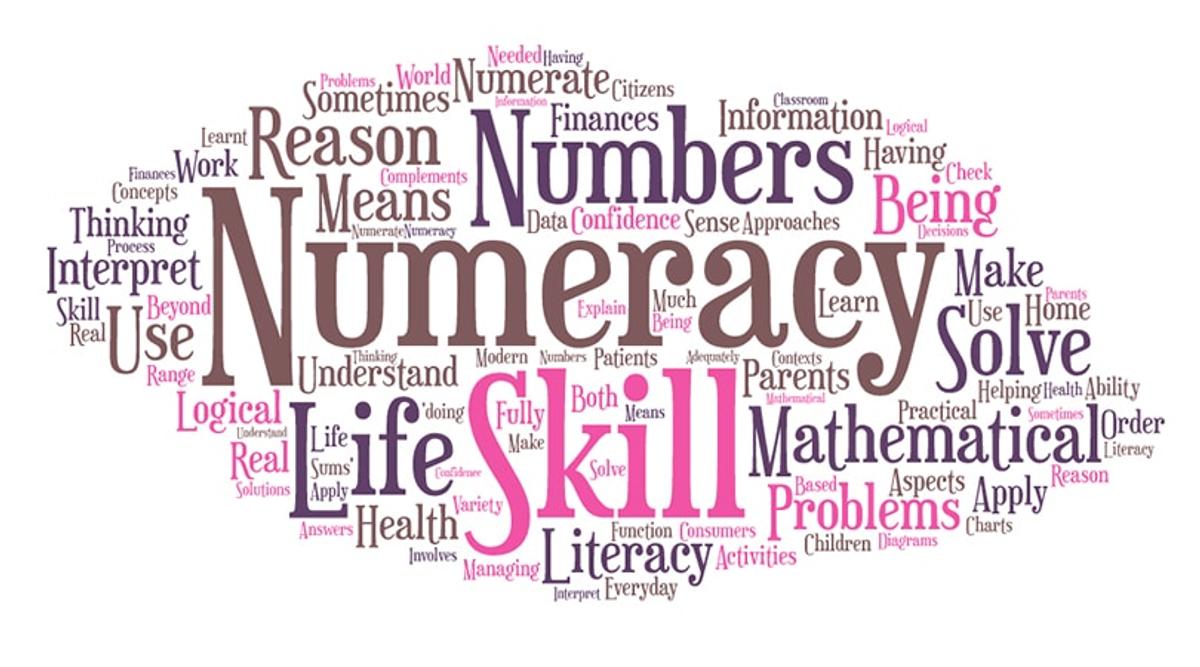

We had our First Maths Olympiad last week, and were extremely proud of these students who received the perfect score. Congratulations to you all.


And to our two Year 3 students, Elliot and Patrick M., Congratulations on an amazing start, you persisted and gave it your best. Well done
Developing Problem Solvers: A Key Focus in Mathematics Learning
At our school, we're passionate about developing confident, curious, and capable problem solvers - students who can think critically, work flexibly, and apply their maths skills to real-life situations. This aligns closely with the Victorian Curriculum, which highlights problem solving as one of the key proficiencies in Mathematics.
Why is problem-solving so important?
Problem solving helps children make sense of the maths they are learning. It's not just about getting the "right answer" - it's about thinking through a challenge, trying out different strategies, and learning from mistakes. These are life skills that go beyond the classroom and are valuable in every aspect of daily life.
What does this look like in the classroom?
Across all year levels, our students engage in rich, open-ended tasks that allow for multiple entry points and solutions. For example:
Teachers encourage students to explain their thinking, try different strategies, and collaborate with others. This helps deepen understanding and build resilience when faced with challenging tasks.
The strategies we use are these:


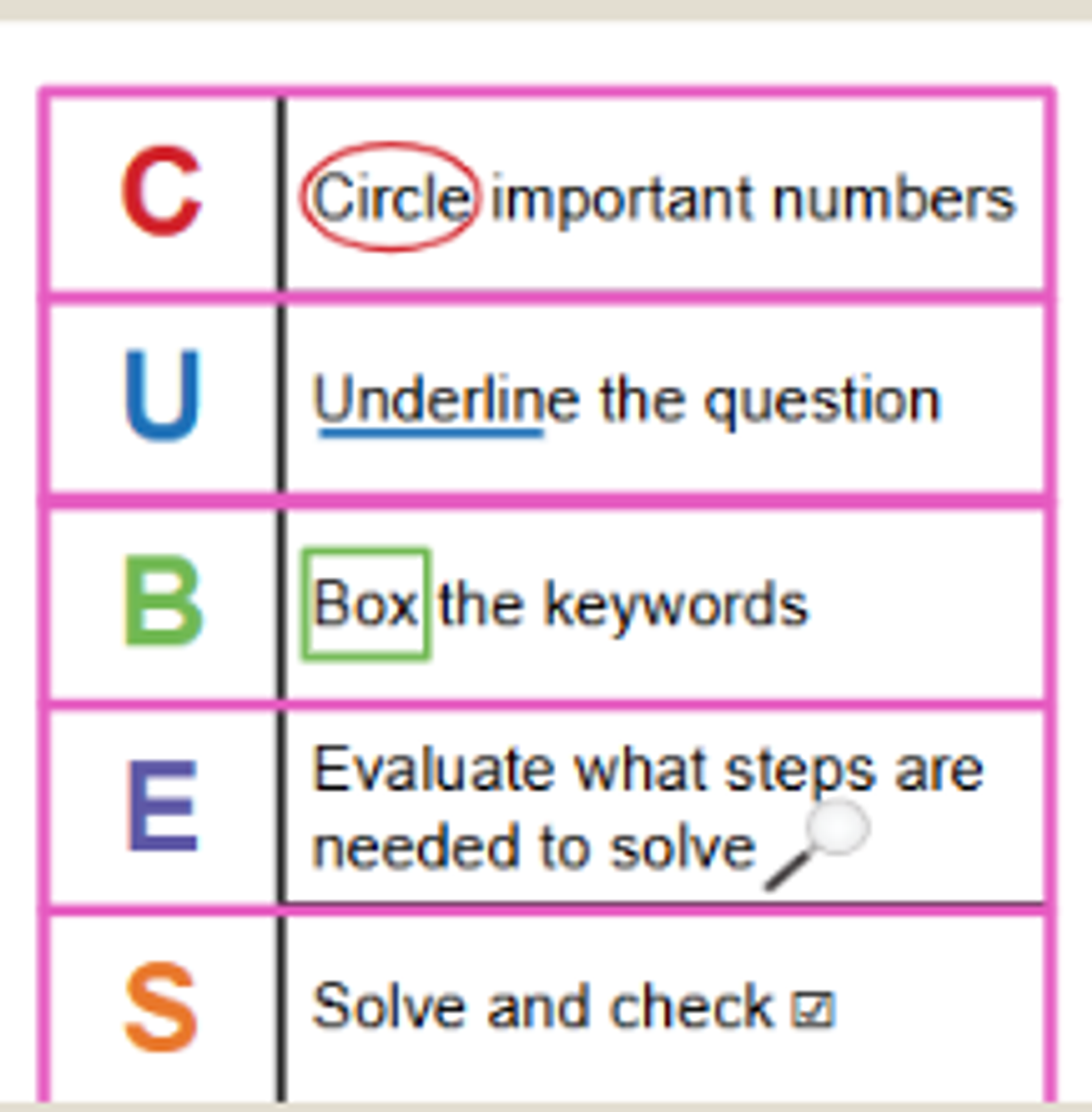

With worded problems we are also teaching the CUBES Strategy.
The CUBES strategy is a method that children can use to work through word problems in Maths. CUBES is the acronym, and it stands for ‘Circle’, ‘Underline’, ‘Box’, ‘Evaluate and Draw’, and ‘Solve and Check’.
How can parents support problem solving at home? There are many everyday opportunities to build your child’s problem-solving skills:
When children are encouraged to think, explore, and reason, they become more than just good mathematicians - they become confident, capable problem solvers ready to tackle the world around them.
INTERSCHOOL SPORT
SCHOOL SPORT VICTORIA
St Fidelis Primary School is an affiliated member of School Sport Victoria and competes in various sports within the Coburg District. The Coburg District aims to provide the children with the opportunity to participate in well-organised and enjoyable sporting events that are an extension of school based Sport & Physical Education programs. It is our school’s belief that children benefit greatly from visiting and competing with other schools within the Coburg District.
SSV Coburg District Events Program Outline
TERM 2 EVENTS
SSV COBURG DISTRICT WINTER SPORT COMPETITION
Friday May 2 - Friday June 27
ELIGIBILITY
Grade 6 (priority) and Grade 5 students
SPORTS:
Boys/Mixed AFL 9s Football, Girls AFL 9s Football,
Boys/Mixed Soccer, Girls Soccer,
Boys/Mixed Netball & Girls Netball.
.
SSV COBURG DISTRICT CROSS COUNTRY CHAMPIONSHIPS
The Annual SSV Coburg District Cross Country Championships is to be held at Jackson Reserve, Coburg (Coburg Athletics Track) on Monday 19 May 2025, commencing at 9:45 a.m. and concluding by 12.15 pm (Back-up day: Wednesday 21 May 2025). Events will be conducted for boys and girls in the 10, 11 and 12/13 year age groups. The 10-year-old boys and girls run 2km. Students turning 9 this year can compete in the 10-year age group. Students younger than this cannot compete. The 11 and 12/13 year old boys and girls run 3km. Age groups are determined as of 31st December in the year of competition. Therefore, whatever age the student is turning this year or has turned this year, will be the age he/she compete. Each event commences at the track, continues into nearby parkland and concludes back at the track.
Congratulations to the following students who have qualified to compete at this event
(Please note that emergencies will only compete in the absence of a St Fidelis competitor)
10 Year Girls
TESS N
ISABEL A
RILEY L
HANNAH F
FLORENCE M
ELLA S
MARIA S
ARIANA K emergency
EVA M emergency
10 Year Boys
ZAC H
HUNTER F
RAFAEL S
OSCAR A
ELLIOT C
ORLANDO B
RODERICK P
DAMIEN S emergency
TOMMY G emergency
CARLO T emergency
11 Year Girls
CLARA P
11 Year Boys
SKYLER F
CALEB P
JULIANO C
HARRISON M
12 Year Boys
FELIX C
PIERRE M
CHRISTIAN L
ANDERSON S
BUONGIORNO!
Salve a tutti! (Hello to everyone),


Festa della Mamma! (Mother’s Day)
Auguri per tutte le mamme, nonne, zie, e donne nella famiglia, (mums, grandmas, aunties and female family members). Hope all these women in your famiglia (family), had a special day domenica (Sunday) and were shown how much their family loves and appreciates them. Hope you also enjoyed your gifts and cards and were able to understand what your child wrote in Italian.


Papa Leonardo XIV
Auguri to Papa Leo XIV, for being chosen to lead the Roman Catholic church. Papa Leo XIV, was the first American pope to be elected. He will be living inside the Vatican city. We wish him all the best in his new role.
Giro d’Italia


Well it’s that time of the year again…the Giro d’Italia. This Italian 3 week men’s cycling race, began last venerdì 9 maggio, and will end domenica 1 giugno (in Roma). As usual there will be 21 stages, including rest days, covering places throughout Italia, even though the first 3 stages were in Albania this year. Even though it is televised on tv fairly late, I will certainly be watching the race again. I may have to watch some of the highlights later on the internet the following day. You may like to watch the highlights too, or see the various towns that they race through. I wonder if you can follow the route the cyclists will be riding? I’ll sign off now.
Until next time…buona settimana! (Have a good week).
Signora Rosa 🌹